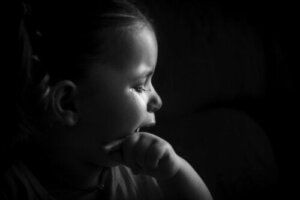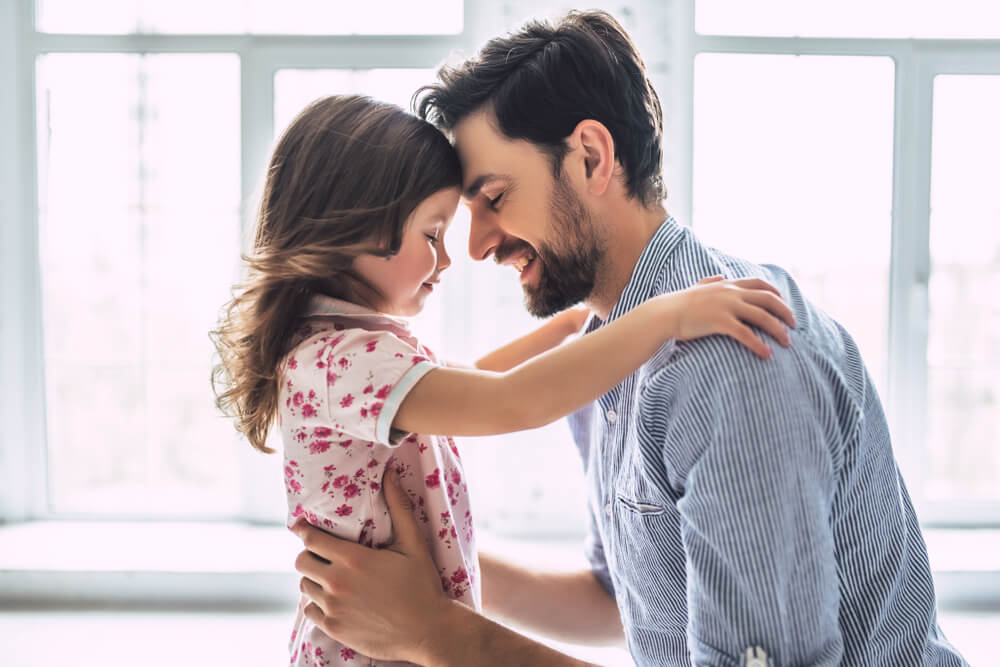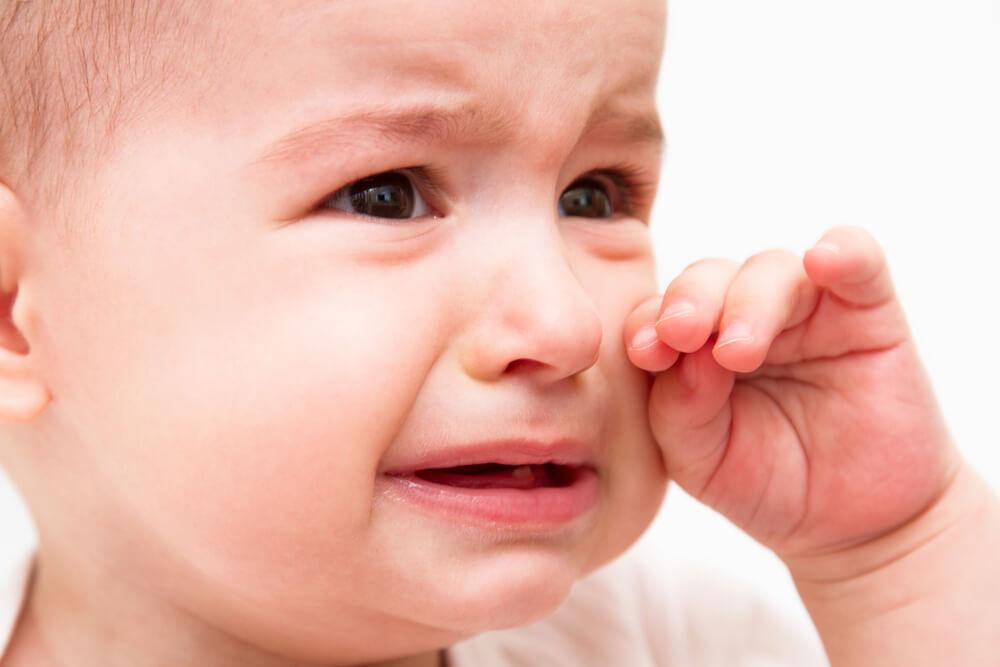Do All You Can So that Your Children Don't Have to Recover from Their Childhood

Childhood passes in the blink of an eye and represents a decisive stage in the consolidation of a person’s personality and self-esteem. For this reason, do everything possible so that your children don’t have to recover from their childhood, as, on many occasions, in an unintentional way, emotional wounds can be created that hurt little ones. And this pain accompanies them even into adulthood.
The moment we become parents, we have the responsibility to do everything in our power to raise happy children. An adult who’s broken inside because they weren’t valued in childhood will be more likely to suffer from mental disorders, such as anxiety or depression, as a result of the wounds that still linger in their heart. There’s nothing sadder than growing up feeling inadequate, unloved, and judged.
You might be interested in: 15 Habits that Make Children Happy
3 tips so that your children don’t have to recover from their childhood
Being parents is a challenge that tests us every day. However, despite how difficult it can be at times, children need responsible figures to educate and guide them to be better people.
And although it’s a reality that children can sometimes have attitudes that only generate stress and anger, it’s essential to strengthen emotional intelligence to correct them with love and respect and not hurt their feelings.
Here are some recommendations so that your children don’t have to recover from their childhood.
1. Employ positive parenting
The way we raise our children has a great influence on the person they’ll become in the future. Positive parenting based on love, respect, and empathy is the best way to express our affection. Showing little ones that, despite their mistakes, the affection we feel for them is stronger than the obstacles.

Children come into this world like a blank sheet of paper to which new lines are added every day. This means that, although at the beginning they don’t have the emotional tools to manage their feelings, it’s our obligation as parents not to give in to moments of tension and to educate them from an understanding and empathetic point of view.
Those children who, instead of being educated through dialogue and empathy, are corrected through blows and hurtful words, will grow up with an enormous wound inside them that will be difficult to heal. This is because they were never explained with affection why their actions were wrong. Rather, their emotions were invalidated through authoritarianism and physical or psychological violence.
2. Assume your parental responsibilities
Being a parent of a small child isn’t an easy task. Providing all the tools they need to grow up healthy requires a lot of responsibility and dedication. For this reason, before making the decision to be a mom or dad, keep in mind that it’s a lifelong job and comes with imminent obligations.
If you decide to have a baby with your partner, keep in mind that the child needs all your dedication and emotional intelligence. Those parents who abandon their little ones to the mercy of life and do not assume their responsibilities are consciously creating a wound of abandonment that will accompany their children throughout their lives.
This will make them believe that they’re not worthy of love, feeling the absence of their most important figures. So, before having a baby, keep in mind that they’ll need your presence and dedication throughout their existence. And even more so during their childhood and adolescence. Because of this, never abandon your children amidst the apathy of the world.
Continue reading: 5 Emotional Wounds During Childhood That Last Into Adulthood
3. Be empathetic and don’t confuse fear with respect
When fear takes precedence over empathy and respect, children grow up fearful and emotionally distanced from their parents. This is a serious mistake, as little ones shouldn’t feel fear, but respect when talking to their mom or dad. Physical punishments, hurtful words, and a lack of communication only break children’s trust and make it difficult for them to empathize with the pain of others.

For this reason, never use authoritarianism, but rather, educate through love, dialogue, and respect. And although sometimes this may seem very difficult, remember to remain empathetic. Keep in mind that your job as a parent is to make your children understand their mistakes with affection so that they don’t make them again.
Put these tips into practice so that your children don’t have to recover from their childhood
Behind the bad attitudes of children hides a fearful creature that needs love to understand their mistakes. Parents are the emotional guides and the main example of our children. So, if you want them to act with emotional intelligence, you must do it first so that they see in you a model to follow.
So, before resorting to any kind of violence or selfishly deciding not to take care of your parental duties, reflect on all the damage you’re doing to your children. Remember that using positive parenting with children and adolescents, spending quality time with them, respecting each of their stages, and correcting them with empathy and respect are the only ways your children won’t have to recover from their childhood.
Childhood passes in the blink of an eye and represents a decisive stage in the consolidation of a person’s personality and self-esteem. For this reason, do everything possible so that your children don’t have to recover from their childhood, as, on many occasions, in an unintentional way, emotional wounds can be created that hurt little ones. And this pain accompanies them even into adulthood.
The moment we become parents, we have the responsibility to do everything in our power to raise happy children. An adult who’s broken inside because they weren’t valued in childhood will be more likely to suffer from mental disorders, such as anxiety or depression, as a result of the wounds that still linger in their heart. There’s nothing sadder than growing up feeling inadequate, unloved, and judged.
You might be interested in: 15 Habits that Make Children Happy
3 tips so that your children don’t have to recover from their childhood
Being parents is a challenge that tests us every day. However, despite how difficult it can be at times, children need responsible figures to educate and guide them to be better people.
And although it’s a reality that children can sometimes have attitudes that only generate stress and anger, it’s essential to strengthen emotional intelligence to correct them with love and respect and not hurt their feelings.
Here are some recommendations so that your children don’t have to recover from their childhood.
1. Employ positive parenting
The way we raise our children has a great influence on the person they’ll become in the future. Positive parenting based on love, respect, and empathy is the best way to express our affection. Showing little ones that, despite their mistakes, the affection we feel for them is stronger than the obstacles.

Children come into this world like a blank sheet of paper to which new lines are added every day. This means that, although at the beginning they don’t have the emotional tools to manage their feelings, it’s our obligation as parents not to give in to moments of tension and to educate them from an understanding and empathetic point of view.
Those children who, instead of being educated through dialogue and empathy, are corrected through blows and hurtful words, will grow up with an enormous wound inside them that will be difficult to heal. This is because they were never explained with affection why their actions were wrong. Rather, their emotions were invalidated through authoritarianism and physical or psychological violence.
2. Assume your parental responsibilities
Being a parent of a small child isn’t an easy task. Providing all the tools they need to grow up healthy requires a lot of responsibility and dedication. For this reason, before making the decision to be a mom or dad, keep in mind that it’s a lifelong job and comes with imminent obligations.
If you decide to have a baby with your partner, keep in mind that the child needs all your dedication and emotional intelligence. Those parents who abandon their little ones to the mercy of life and do not assume their responsibilities are consciously creating a wound of abandonment that will accompany their children throughout their lives.
This will make them believe that they’re not worthy of love, feeling the absence of their most important figures. So, before having a baby, keep in mind that they’ll need your presence and dedication throughout their existence. And even more so during their childhood and adolescence. Because of this, never abandon your children amidst the apathy of the world.
Continue reading: 5 Emotional Wounds During Childhood That Last Into Adulthood
3. Be empathetic and don’t confuse fear with respect
When fear takes precedence over empathy and respect, children grow up fearful and emotionally distanced from their parents. This is a serious mistake, as little ones shouldn’t feel fear, but respect when talking to their mom or dad. Physical punishments, hurtful words, and a lack of communication only break children’s trust and make it difficult for them to empathize with the pain of others.

For this reason, never use authoritarianism, but rather, educate through love, dialogue, and respect. And although sometimes this may seem very difficult, remember to remain empathetic. Keep in mind that your job as a parent is to make your children understand their mistakes with affection so that they don’t make them again.
Put these tips into practice so that your children don’t have to recover from their childhood
Behind the bad attitudes of children hides a fearful creature that needs love to understand their mistakes. Parents are the emotional guides and the main example of our children. So, if you want them to act with emotional intelligence, you must do it first so that they see in you a model to follow.
So, before resorting to any kind of violence or selfishly deciding not to take care of your parental duties, reflect on all the damage you’re doing to your children. Remember that using positive parenting with children and adolescents, spending quality time with them, respecting each of their stages, and correcting them with empathy and respect are the only ways your children won’t have to recover from their childhood.
All cited sources were thoroughly reviewed by our team to ensure their quality, reliability, currency, and validity. The bibliography of this article was considered reliable and of academic or scientific accuracy.
- Kelvin, R. (2016. Depression in children and young people. Paediatrics and Child Health (United Kingdom). Churchill Livingstone. Recuperado de: https://doi.org/10.1016/j.paed.2016.08.008
- Pérez, V. R., & Martínez, L. M. R.(2015). Apego, miedo, estrategias de afrontamiento y relaciones intrafamiliares en niños. Psicología y salud, 25 (1), 91-101. Recuperado de: http://psicologiaysalud.uv.mx/index.php/psicysalud/article/view/1342
- Sarrió, A. R. (2014). Heridas emocionales. Heridas pendientes de sanar para ser feliz. Recuperado de: http://www.pastoraljuvenil.es/wp-content/uploads/2016/10/446_2.pdf
- Touza Garma, C.(2002). Las consecuencias del maltrato y del abandono en el desarrollo socioemocional de niños y adolescentes institucionalizados. Universidad Complutense de Madrid, Servicio de Publicaciones. Recuperado de: https://eprints.ucm.es/id/eprint/3028/
This text is provided for informational purposes only and does not replace consultation with a professional. If in doubt, consult your specialist.








